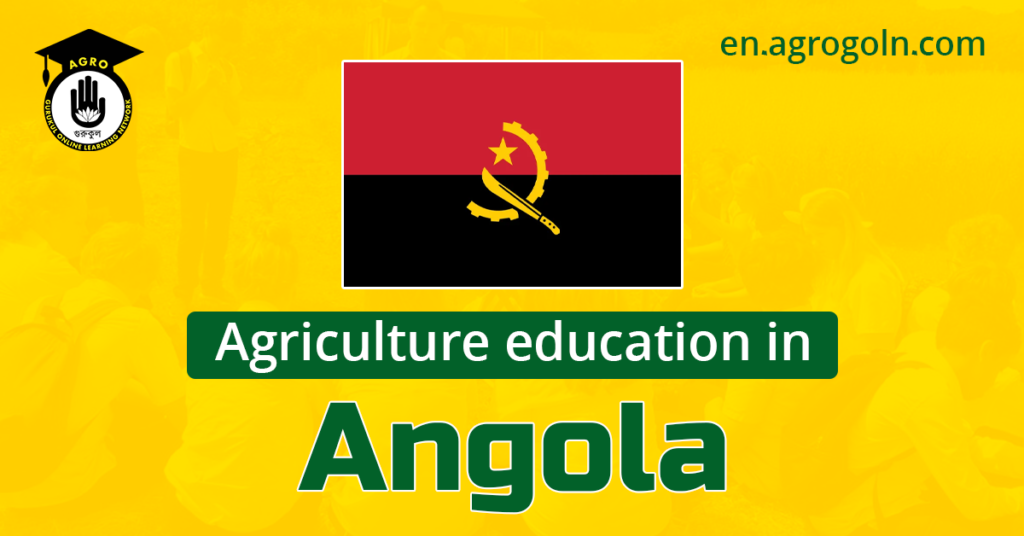Agricultural Education in Angola.As a Sub-Saharan African nation, Angola’s economy is heavily dependent on agriculture, employing approximately 80% of the population and contributing significantly to the country’s GDP. With such a significant portion of the population involved in this sector, the importance of agricultural education becomes obvious. This essay aims to delve into the state of agricultural education in Angola, assess its challenges, and explore potential solutions and opportunities for future development.
Agricultural Education in Angola
Current State of Agricultural Education
Agricultural education in Angola is currently delivered through a variety of channels including formal schooling, non-formal education, and on-the-job training. Formal agricultural education is offered at several levels including primary, secondary, and tertiary levels. Additionally, various non-governmental organizations (NGOs) and international agencies conduct non-formal training programs aimed at providing farmers with essential agricultural knowledge and skills.
However, the sector is still recovering from the devastating impacts of a 27-year-long civil war, which ended in 2002. The war caused significant damage to the country’s infrastructure, including schools and educational facilities, and severely disrupted the education system. This led to a generation of Angolans, especially those in rural areas, who missed out on formal education, including agricultural education.
In terms of higher education, agricultural courses are offered in universities such as the Kimpa Vita University, José Eduardo dos Santos University, and Katyavala Bwila University. These institutions provide bachelor’s, master’s, and doctoral programs in various agricultural disciplines, including agronomy, animal science, and agricultural economics. However, these programs are mainly concentrated in urban areas, limiting access for rural inhabitants.
Challenges in Agricultural Education
There are several challenges currently facing agricultural education in Angola. Firstly, access to quality agricultural education is limited, especially in rural areas where the majority of the farming population resides. This is compounded by a lack of transportation and poor road infrastructure, which makes it difficult for students to commute to educational institutions.
Secondly, the educational curriculum often lacks a practical component. While theoretical knowledge is essential, agriculture is a hands-on field, and practical skills are crucial for success. There is a need for more learning-by-doing approaches, including on-field training and internships.
Thirdly, the lingering effects of the civil war are still felt, with many adults having missed out on education due to the conflict. This has created a significant education gap that needs to be filled through adult education and training programs.
Finally, the lack of well-trained and qualified agricultural educators is another key challenge. It is critical to have educators who are not only knowledgeable about modern farming techniques but also competent in pedagogical skills to effectively teach these concepts to students.
Prospects for Future Development
While the challenges are significant, there are several opportunities and prospects for the development of agricultural education in Angola.
Firstly, the Angolan government, with support from international organizations, is investing in rebuilding the country’s educational infrastructure. New schools and training centers are being built, especially in rural areas, to increase access to education, including agricultural education.
Secondly, there are efforts to revise the agricultural education curriculum to make it more practical and relevant to the needs of the farming community. This includes incorporating topics like sustainable farming practices, agri-business management, and climate-smart agriculture.
Thirdly, partnerships between educational institutions and agricultural businesses could offer students valuable practical experience. Such partnerships can facilitate internships and apprenticeships, providing students with real-world experience and a better understanding of the agricultural industry.
Lastly, adult education and training programs are being developed to address the education gap among adults. These programs focus on equipping participants with basic literacy skills, as well as practical agricultural knowledge to improve their farming practices.
Agriculture plays a significant role in Angola’s economy and offers a vital pathway to poverty reduction and economic stability. As such, agricultural education is crucial in equipping the population with the necessary skills and knowledge to maximize their productivity and support sustainable agricultural practices.
However, the sector faces considerable challenges, including limited access to quality education, a lack of practical training, the residual effects of civil war, and a shortage of qualified educators. Despite these hurdles, positive strides are being made to improve the situation, with investments in infrastructure, curriculum reform, institution-business partnerships, and adult education programs.
While progress is being made, ongoing commitment and investment from both the Angolan government and international community will be necessary to ensure the development and sustainability of agricultural education in Angola. This is not just about improving agricultural productivity; it’s about empowering individuals, transforming communities, and changing the trajectory of Angola’s future.
See more:
Angola Agricultural Gallery:

